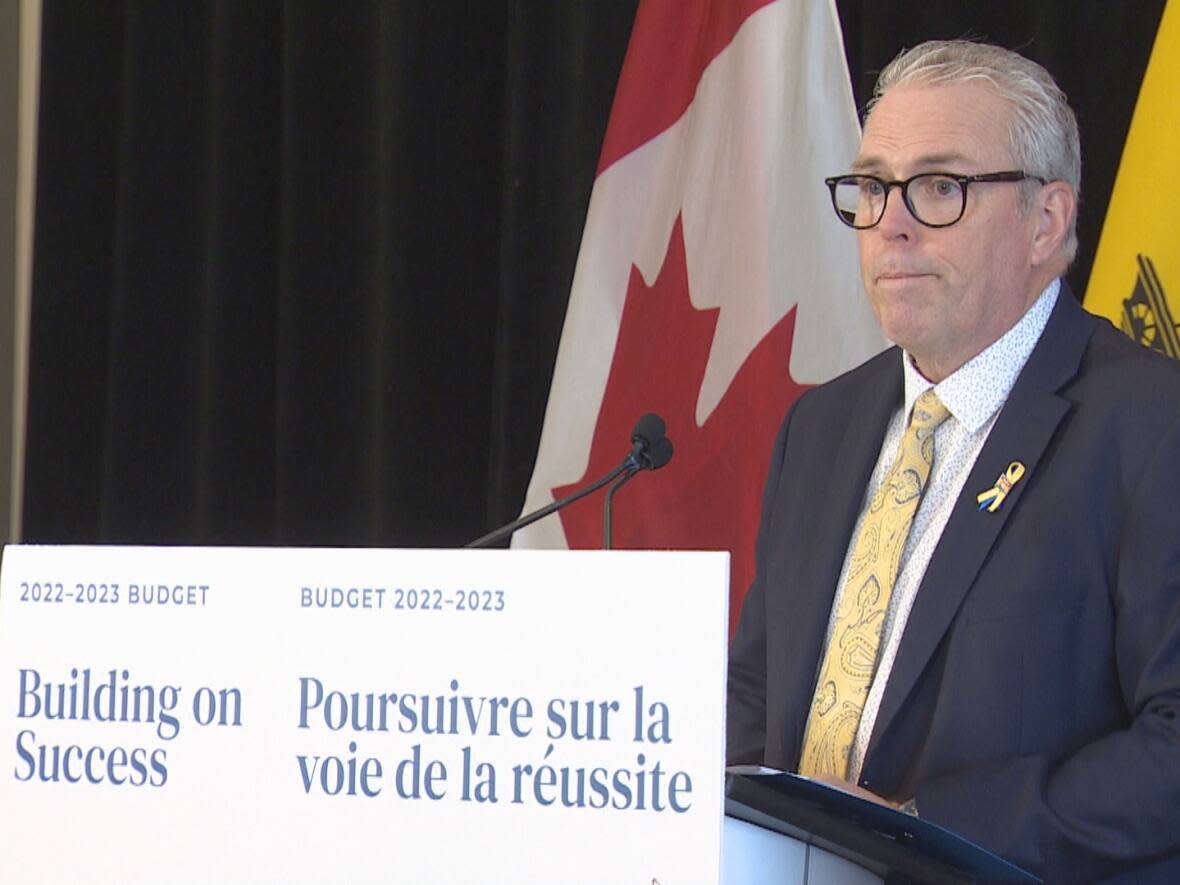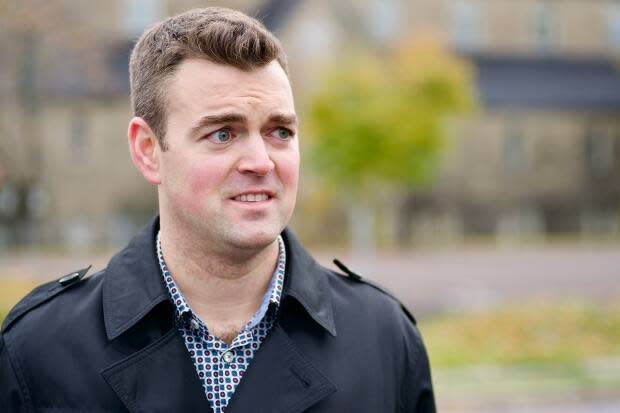Provincial surplus projected at $100 million more than expected

The Higgs government is awash in cash, with a surging economy and a growing provincial population fuelling a projected $135.5 million budget surplus in the current fiscal year.
That's $100 million more than Finance Minister Ernie Steeves projected in his budget in March, thanks to revenues from personal income taxes and the harmonized sales tax on track to be far higher than expected.
Opposition Liberal finance critic Rob McKee said the surplus should be spent to address chronic emergency department wait times and sporadic hospital service closures.
A larger surplus "is hard to justify when we look at the various crises the province is facing, especially in the heath-care sector," he said.

But Steeves told reporters that it's a lack of staff, not a lack of funding, creating the problems.
"Money alone doesn't fix the system. Certainly if there are nurses out there who want a job, we'll get them a job," he said. "It's hard to overcome the lack of bodies, and it isn't just here. It's in Nova Scotia. It's in Alberta. It's in B.C. It's all over.
"I can't just tell you, 'Yes, we're going to throw another hundred million at it …' If there's something worthy of spending money on using that surplus, we'll use it. It's not about getting the biggest surplus we can. It's about spending it as wisely as we can," Steeves said.
Earlier this month Premier Blaine Higgs tweeted that his government had already "funded the change we need" with a large increase earlier this year.
'You spend it as you get it'
The March budget included a 6.4 per cent hike in health spending. The boost of $168.5 million was the largest since 2008-09.
A one-time federal government grant of $41.2 million under the Canada Health Transfer to clear surgery backlogs also contributed to the bigger surplus projection.
The funding, announced three days after Steeves's budget in March, is showing up in Tuesday's figures as revenue boosting the surplus, but not as additional health spending.
"You spend it as you get it. It's a matter of getting surgical operating theatres," Steeves said. "They're spending it. There won't be any left by the end of the year, for sure."
Government spokesperson Erika Jutras later clarified that supplementary estimates in the legislature will allocate the funding to the health budget, which would remove it from the surplus.
Personal income taxes are on track to bring in $86 million more than projected this year, and HST revenue is now forecast at $40.8 million more than what Steeves budgeted in March.
The $135.5 million surplus would be even higher if the province weren't also spending more than budgeted.
That includes the $20 million Emergency Food and Fuel Benefit announced in June to offset the impact of inflation on social-assistance recipients and $17.8 million more in capital spending, including on nursing homes under a federal-provincial agreement.
In March Steeves's budget projected a small surplus of $35.2 million as the Progressive Conservatives opened the spending taps and reduced taxes.
At the time of the March budget, the Liberal opposition and economist Richard Saillant predicted that the PCs were lowballing revenue expectations and would record a larger surplus.
That's what happened in the previous two fiscal years when the government recorded surpluses of $408 million in 2020-21 and $487.8 million in 2021-22.
End-of-year surplus
Saillant said Tuesday it's plausible the same thing will happen this year.
"I'm not calling for this, but I suspect we could see a surplus at the end of this year that will be meaningfully higher than the one they're announcing," he said.
Steeves noted the parliamentary budget officer in Ottawa recently concluded that New Brunswick's finances aren't sustainable over the long term because of soaring health care costs.
He said the revenue boom is likely to continue in the short term, but the province can't commit to long-term new spending because the windfall is unlikely to last.
Even so, Steeves said the provincial cabinet was looking at the possibility of tax cuts at a meeting last week. He refused to say which taxes might be cut.


